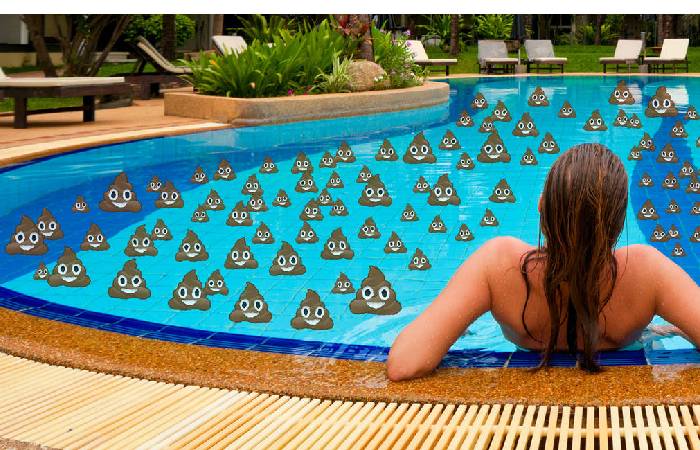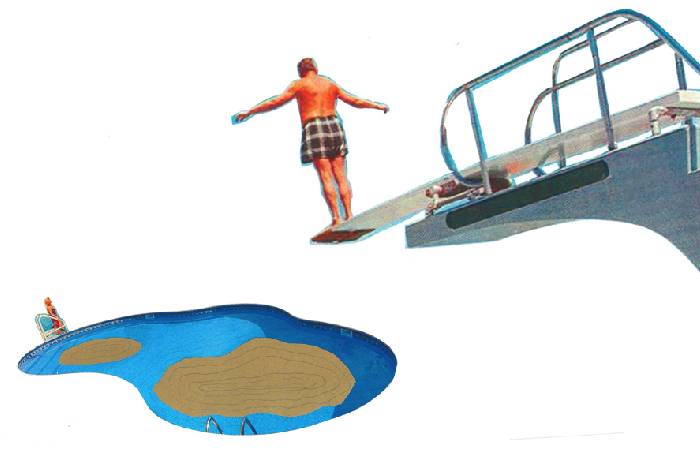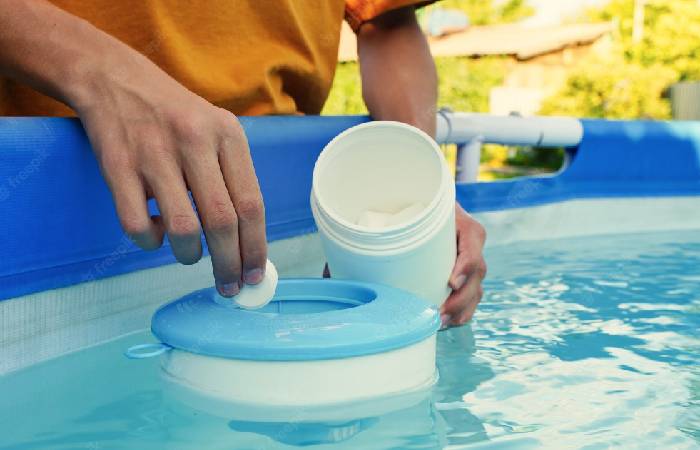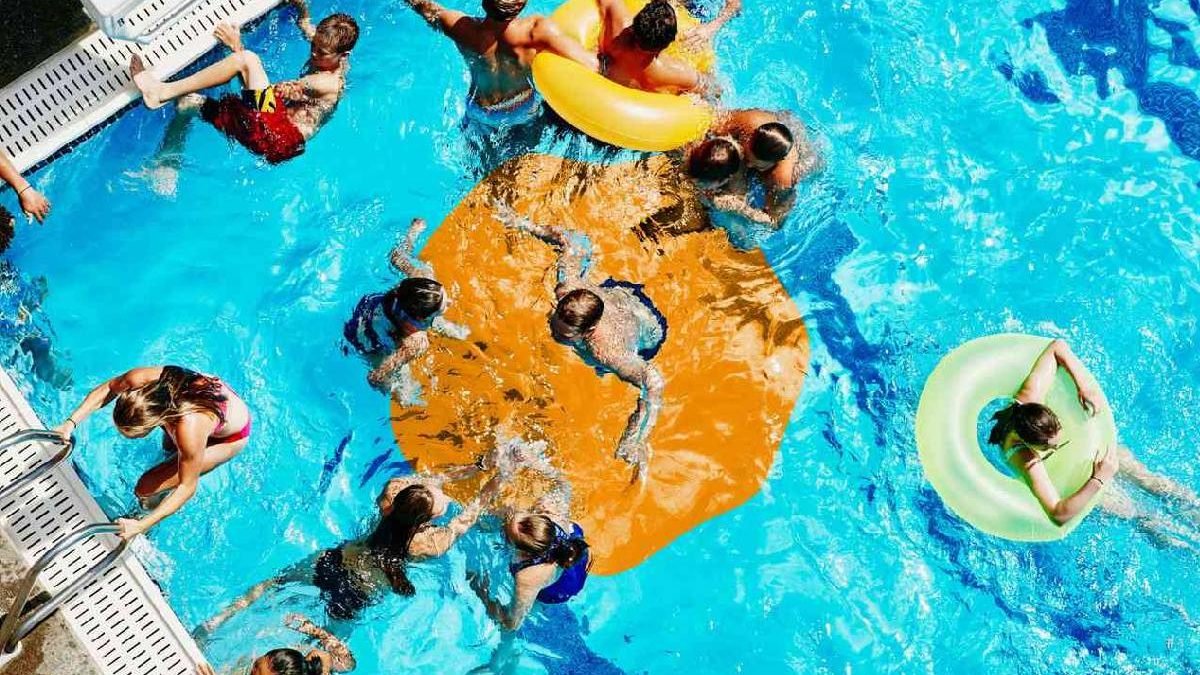Table of Contents
swimming with diarrhea cdc gif
This summer, the Centers for Disease Control (CDC) and Prevention is pleading with people to refrain from swimming if they have diarrhoea. Swimming with diarrhea cdc gif, CDC tried to make their point by making the appeal with not one, but two sweet GIFs.
One GIF that was tweeted shows a young girl sliding down a pool slide while leaving a brown path in her wake. “If you or your kids are diarrhoeic, avoid swimming. The entire pool can get contaminated by one individual with diarrhoea “Together with it, the CDC stated.
Don’t swim or let your kids swim if sick with diarrhea. One person with diarrhea can contaminate the entire pool. Learn more ways to keep you and those you care about healthy. #HealthySwimming https://t.co/3ogS3ZlQX6 pic.twitter.com/lbN6uvvufu
— CDC (@CDCgov) July 1, 2021
“Don’t leave your stain at the pool this summer!” reads the gif text. “It only takes one person with diarrhoea to contaminate the entire pool.”
The CDC also included a link to the “steps for healthy swimming” online page, which reiterates the advice to avoid swimming when experiencing diarrhoea.
The CDC particularly refers to the small parasite Cryptosporidium, which has a shell around it that protects it from the elements and makes it chlorine resistant.
According to the CDC, Cryptosporidium is a major contributor to waterborne illness in the US. The most typical symptom is one to two weeks of watery diarrhoea.
Can I go swimming if I have diarrhea?

You cannot go swimming if you have diarrhea. Because drinking polluted recreational water, such as that found in swimming pools, hot tubs, water parks, or in the ocean, lakes, or rivers, might make you sicker from diarrhoea. In fact, diarrhoea is the symptom that is reported the most frequently in outbreaks connected to recreational water.
Which aquatic bacteria are responsible for diarrhoea?
Germs that may cause diarrhoea.
- Crypto (short for Cryptosporidium)
- Giardia
- Shigella
- Norovirus
- E. coli O157
Depending on the type of germ, these bacteria can survive in adequately chlorinated water for minutes to days.
Why shouldn’t you swim with diarrhea?

Swimming while experiencing diarrhoea “is a perilous thing to do since you can have diarrhoea for a multitude of causes, some of which are communicable.”
The CDC notes that the typical swimmer has roughly 140 billion bacteria of excrement hiding on their bodies, though it’s not always something you’ll notice, the expert explains. You can have germs or a virus on your anal region that washes into the pool.
In addition to Cryptosporidium, you might also be infected with the parasite giardia and the bacterium E. coli.
The other individuals who swim in that water may unintentionally consume it or get it in their eyes or nose, which might lead to an infection. Moreover, “chlorine can’t neutralise everything,” which is terrible.
There are some causes of diarrhoea, such as parasites, require high quantities of chlorine to be killed. “Normal pools might not have those chlorine levels.”
Of course, if you have severe diarrhoea, it might be difficult to manage your bowel motions. It’s not just disgusting—unsanitary—to it’s have an accident in the pool while dealing with watery poop.
In the end, physicians concur that it’s really preferable to wait outside swimming in the pool until it totally clears if you have diarrhoea.
Swimming after diarrhea nhs

But swimming isn’t always a safe option. Health organisations, including NHS, highly encourage individuals to stay away from swimming pools if they are now experiencing or have recently experienced diarrhoea.
Cryptosporidiosis, an intestinal parasite infection, can induce diarrhoea as one of its symptoms. Stomach pains, fever, nausea, and vomiting are some more signs and symptoms. Infected individuals can contaminate swimming pools, and it requires very high amounts of chlorine applied over several days to eradicate the parasite. Additionally, for up to 14 days after the last symptom, it can still be transmitted by infected people.
Before you take a plunge in a public pool, you should wait at least 2 weeks following your symptoms and full recovery from diarrhoea. You may prevent the sickness from spreading to others by doing this.
By ingesting a relatively tiny amount of pool water that has Cryptosporidium, other swimmers might get sick. A few days later, diarrhoea results from this.
does chlorine kill diarrhea?

we want to make sure you know these important facts about diarrhea-causing germs and how to protect yourself and loved ones.
- When swimmers have diarrhea in the water, they release diarrhea-causing germs into the water. For example, a swimmer infected with the parasite Cryptosporidiumcan release 10–100 million germs into the water. Swallowing 10 or fewer Cryptosporidium germs can make you sick.
- Some diarrhea-causing germs can survive in properly treated water for days. Standard levels of chlorine and other disinfectants can kill most germs in swimming pools within minutes. However, Cryptosporidiumhas a tough outer shell and can survive for more than 7 days in properly treated water. During 2000-2014, the majority of outbreaks linked to pools, hot tubs, or water playgrounds were caused by the parasite Cryptosporidium.

